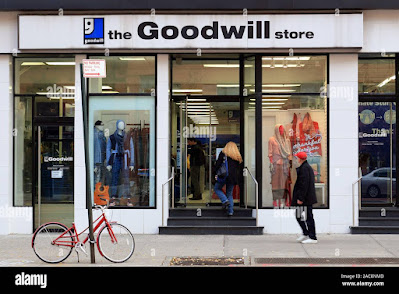This abandoned restaurant is not a photo I took yesterday. It is a stock photo, but I believe you get the idea.
I have spent a large part of my life living in the world that exists while simultaneously preparing for one in which there is a disaster, a governmental collapse or some other kind of devastating change. I came to it as a result of writing care plans for those with serious medical problems who would require support of some kind following hospital release, and in the course of doing this in the 1980s, I found that the systems on which we all depend are fragile, if not inadequate.
Other than episodic tornadoes, an earthquake, hurricanes and a financial collapse in 2008, other than personal tragedies, life for my family has gone on. It hasn't always been easy, buy it hasn't been impossible. So many of the concerns of the preparedness and survival community had not yet happened, until now.
As a consequence of living on a farm, working from home, writing books from home, and aiding family, I haven't been out as much in the last couple of years. I also don't go to a lot of cities when I do get out, preferring instead to arrange to pick something up on the edge of a city, gather it, and head home. This week, I did something different. I needed to take a relative to some places he wished to go and this involved going out for lunch and to some shops we hadn't been to in about three years. It also involved driving to a city within a days drive.
Like many cities, this one is primarily Democrat run. There are a few "Black Lives Matter" signs which look to be permanent. Across the main roadway through town, there are groups of new inhabitants who are from Africa. You can tell this because Africa, which has about fifty-two nations at last count, has many different types of distinctive facial structures and colorations. I noticed some of them who looked like the students I had taught in college who were from Eritrea. Several of them were tall, like men, but had very skinny legs like young children. As they crossed the road in a dangerous and illegal fashion, one could see that two of the men had to have been treated for rickets, by their bony bent legs. I'd heard that this city had taken a large number of refugees from a number of nations, but I hadn't seen them until now. I couldn't help but think they had come during a time where they were likely to see some deterioration here.
We weren't able to have lunch at the place we had planned. It was closed for good. The building and surroundings were not being maintained as it had been. There was also non-specific trash in the parking lot. We found another place for lunch. It was empty, and despite the fact we ordered the lunch special, the total for two was $27.00 . This was in part due to the food, the drink, the sales tax and the meals tax the city levies, which must be significant. It was a decent meal, but hardly expensive fare. Along that stretch of roadway, a number of businesses were gone now, and a few were working on small scale renovations.
For a formerly lovely city this was like a trip in some ways to a place that is post war. This city used to have pretty trees, landscaped areas around stores, large clumps of multicolored daylillies, varietal roses, and bushes with lots of different textured leaves and flowers. Apparently, despite the fact that landscaping is done outdoors, the COVID era meant that landscaping and perhaps paying for landscaping ground to a halt, on the government, private sector, retail and food service levels.
There are more bodegas and even an El Salvadoran restaurant now. It is not unusual to hear Spanish being spoken here. Having learned French and Russian, this places me at a distinct disadvantage because I don't understand what they are saying.
I don't shop in a lot of retail stores, which is a good thing because many of them are permanently closed. I also mentioned in a prior posting that one of the Burger King restaurants that closed about three years ago, is now being used by homeless teens and twenties, as they are climbing the fence around the children's padded play area, which allows they to safely sleep in the sleeping bags they bring in backpacks.
I used to have a small shared office in this city, but a bus stop outside it changed the type of people who would wait there. There are now people panhandling for their copay at the methadone clinic. Who knew that methadone clinics had a copay ? Doesn't that defeat the whole purpose ? I let the office go in the past year thinking that it might not be a safe place to be when I need to run in to use the phone, the fax or get mail.
There is no one thing we can point to in terms of defining the deterioration of our cities. There are many things going on and many things that would need to be addressed. Until then, it's probably best to avoid most cities, particularly at night.






